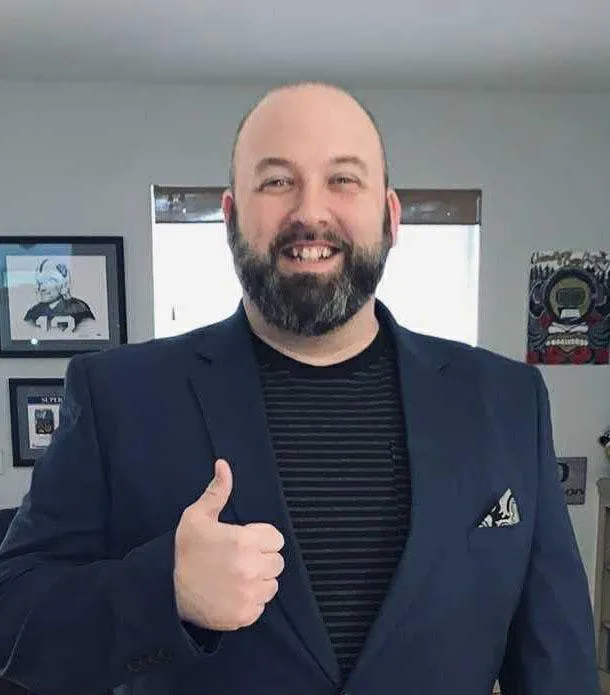WFSE Steward Speaks Up for Justice On and Off the Job

Vancouver, WA—Tyler Close is a Public Benefits Specialist (PBS) 4 for the Department of Children, Youth and Families (DCYF) in Vancouver and a shop steward. Like many public employees, Close is dedicated to service and to helping those in need. That includes his job at DCYF, anti-racism work, and volunteering.
As a PBS, Close works to bring federal reimbursements into Washington to support and bolster DCYF’s work. “The better I do my job, the more funding the department has, which overall affects the whole mission of DCYF,” Close said.
“Getting more funding helps more vulnerable children and helps more social workers get hired, which helps us better and more quickly address the problems of kids coming into care.”
Much of Close’s fundraising and community service has been with Share Vancouver, a nonprofit in the area that offers care and resources to food insecure youth and people experiencing houselessness.
“I’ve probably raised around $40 or $50 grand in the last five years,” he said.
For Close, the connection between his work as a public employee and his role as a responsible community member is clear. That conviction led him to become involved with the Respect, Equity, Diversity and Inclusion (REDI) program—a journey he began at DSHS and now continues at DCYF.
“When I became involved with REDI, I saw that not only could this program help me meet like-minded folks, it was a place we could come and be heard,” he said.
Studies show that creating an environment where people from diverse backgrounds feel supported, respected, and valued has numerous benefits, from increased innovation to higher profit margins in private companies.
But according to Close, the most significant impact of the REDI program was that scaffolded space for coworkers to have difficult conversations about privilege, unconscious bias, and other social issues.
“REDI had rules of engagement that laid the groundwork to transition our workplace to greater equity, diversity, and inclusion,” he said. “It was a safe space to have authentic conversations about racism.”
Hearing his coworkers’ firsthand experiences with racism shifted Close’s view of oppression in modern day America.
“It broke my heart,” Close said, recounting an experience at a REDI retreat where participants had the chance to share how racism and other forms of discrimination had personally affected them.
After that day, Close began to educate himself further about racism and inequity.
“I started buying books on everything from the prison industrial complex to how different cities were built and designed with racist real estate zoning,” Close recalled.
He began to understand that for white people, unlearning racism is both a lifelong project and a daily undertaking—one that helps to cultivate truly authentic relationships in life and in work.
Close still stays in daily communication with the coworkers he met through the REDI program. He learned tools to have constructive conversations not only at work, but with his grandparents, neighbors, and friends.
“We can change the minds of a lot of people,” he said. “We can make racist folks the minority, to where their opinions are just not accepted. That’s how you change the world.”
Close sees anti-racism work continuing to spread, especially within labor unions.
“These conversations are how we lay the groundwork,” he said.
“If everyone does this, together we can change communities, cities and states. I became a shop steward so I could stand up for coworkers who needed that. Being a part of our union means there is someone who’s going to fight for you even if you can’t fight for yourself. Being a union member at its core is important because as a union, we have each other’s backs.”
